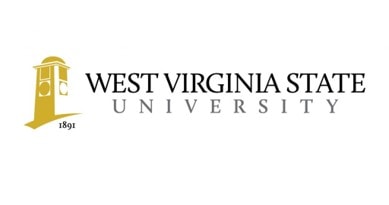
Key Factors
West Virginia State University (WVSU) is a public historically black, land-grant university in Institute, West Virginia. Founded in 1891, it is one of the original 19 land-grant colleges and universities established by the second Morrill Act of 1890, which evolved as a diverse and inclusive campus. One of the university’s three divisions, the WVSU Extension Service (1890 Extension) serves as the outreach arm for the institution, providing community-based education and resources to individuals, families, and businesses across the state focused on economic development, agriculture, youth programs, family and consumer science, and health initiatives.
WVSU Extension’s 4-H Youth Development program brings hands-on science education directly into schools, libraries, and community centers—rather than relying on traditional, club-based 4-H programming. As part of its mobile program, Starlab is used to engage local, underserved communities, with a primary focus on elementary schools, in deeper STEM education.
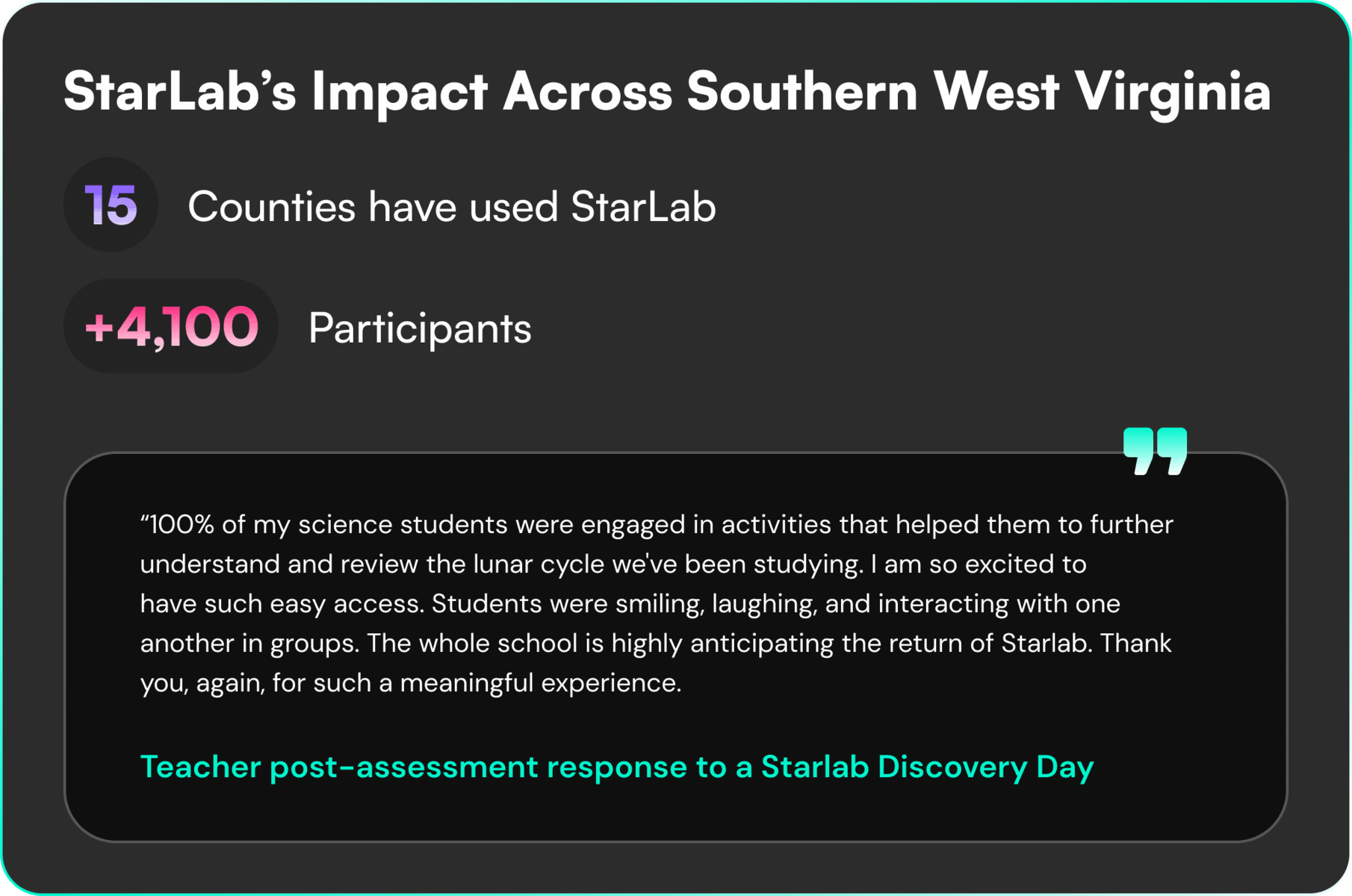
Increasing Accessibility, Hands-on Learning & Community Engagement during 4-H Discovery Days
Unlike the more traditional 4-H clubs of larger land-grant universities, the WVSU Extension Service operates a non-traditional 4-H program, specifically geared to serving low-income, underserved populations who may not be able to afford the transportation and fees required to participate in traditional 4-H clubs. As part of its programming, the division brings 4-H to its communities through school enrichment programs, summer camps, and Discovery Days.
Discovery Days are large-scale school events during which WVSU brings Starlab into schools and community centers to provide hands-on science and astronomy experiences for students.
During the 1 to 3 day event, WSVU’s 4-H educators set up Starlab for an entire school to immerse students in an out-of-this-world Starry Night constellation experience. In addition to studying the constellations, the program is expanding to include meteorology and geology units so students can get a clear picture of the world around them. To reinforce the Starlab experience, students
also participate in activities tailored to their grade levels:
- Building straw rockets
- Constructing marshmallow constellations
- Using star wheels to map the night sky
- Launching stomp rockets
The goal is to provide an interactive science experience that aligns with West Virginia’s state science standards and exposes students to new topics in ways that reinforce classroom learning and bring STEM concepts to life–an experience these students otherwise wouldn’t have.
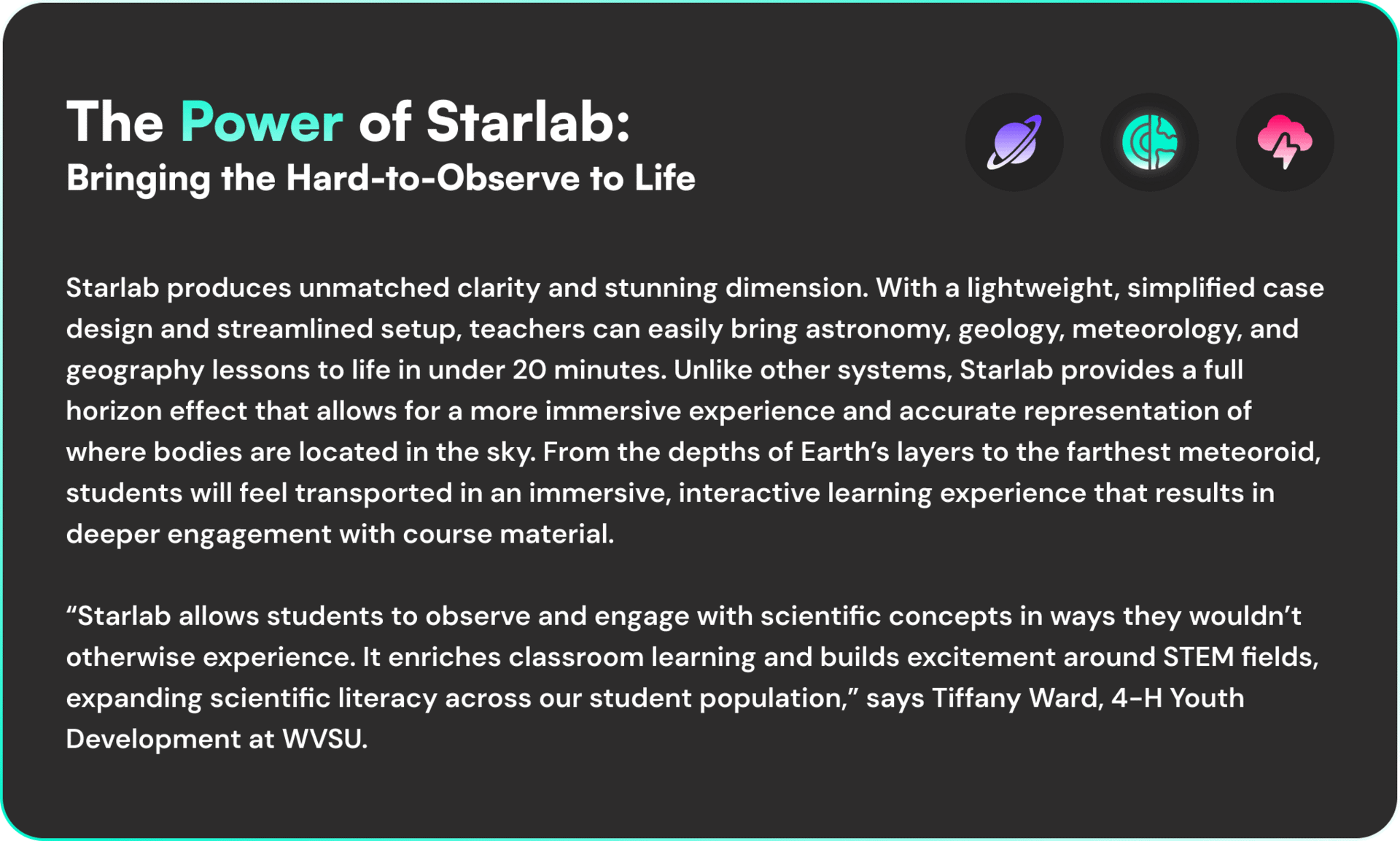
Enriching STEM Culture Beyond Schools Across West Virginia’s Southern Counties
The primary goal of the WVSU Extension’s 4-H program is to enrich the STEM culture in some of the most rural counties in southern West Virginia. In addition to school Discovery Days, the program brings Starlab into public libraries and community centers, leveraging Starlab’s portability to expand access to members of the community.
“We want to find engaging, fun ways for families to participate in science instruction and Starlab is one of the ways we do that—it’s very engaging and fun, especially for younger students. We host family nights at elementary schools, which have been tremendously successful. The feedback from parents and students is amazing,” shared Eli Ghareeb, 4-H Extension Educator.
With curriculum aligned to NGSS standards and that support WV’s state science standards, along with lessons that apply across grade levels, WVSU’s 4-H program can more easily create an interactive learning experience that brings hard-to-understand concepts to life. As a result, students can easily visualize and understand many complex concepts around space and astronomy.
Measuring Impact & Looking Ahead
At the close of Discovery Days, WVSU Extension uses a post assessment to collect teacher feedback and student learning data to measure impact–responses often indicating the positive benefit and enrichment for both students and teachers. WVSU Extension’s 4-H program has been able to reach thousands of students and educators across southern West Virginia–expanding their understanding and interest in STEM–with the feedback time and again that they can’t wait to experience Starlab again.
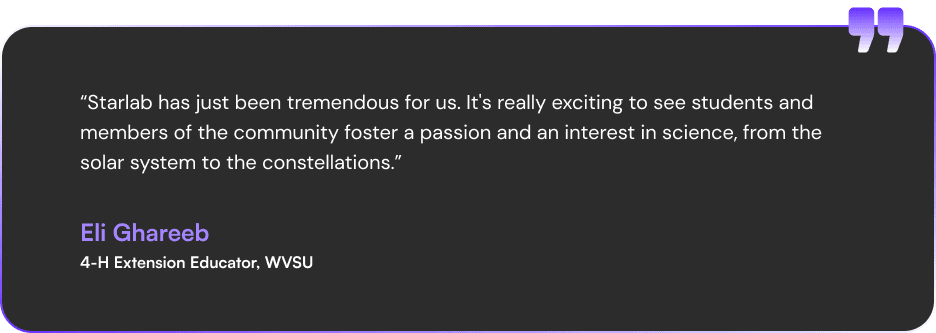
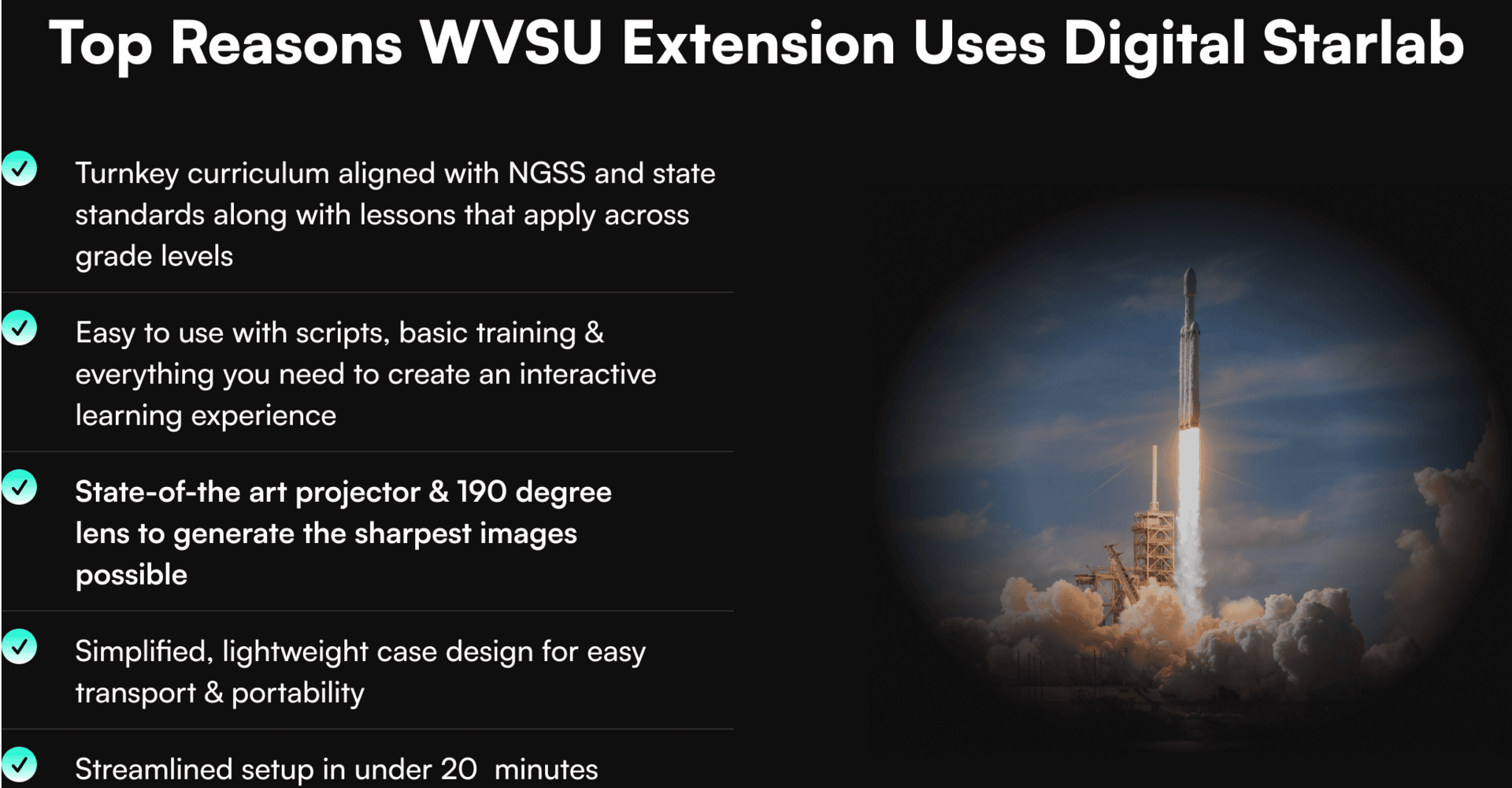
See where Starlab is currently being used
University of Illinois Urbana-Champaign & Starlab: Bringing Astronomy into Rural and Urban Classrooms


Bringing Fun AND Educational Together in Napa County’s Expanded Learning Programs


Fostering an Immersive STEM Learning Experience for Elementary Students at Danbury Public Schools


Expanding Access to Immersive Learning Experiences for Students & Families Across Spartanburg, South Carolina


Corporate Responsibility in Action: How WoodmenLife Uses Starlab to Make a Difference in its Community


Stockton Unified School District
Creating an Immersive Learning Experience for Stockton Unified School District Students


Fairmont State University’s Educator Resource Center
Creating an Immersive Learning Experience at Fairmont State University’s Educator Resource Center

